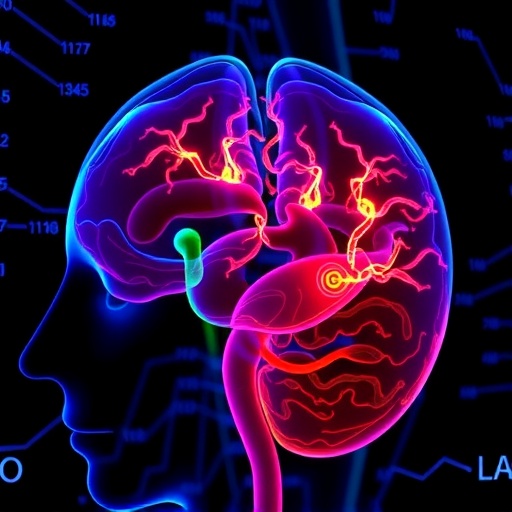In an intriguing advancement bridging hepatology and psychiatry, recent research reveals a significant association between hepatic function and cognitive abilities in patients diagnosed with stable schizophrenia. This groundbreaking study offers compelling clinical evidence that nuances our understanding of the intricate liver-brain relationship, emphasizing the liver’s potential role in neurocognitive health among psychiatric populations.
Schizophrenia, a complex mental disorder characterized by profound disruptions in thought processes, perceptions, and emotional responsiveness, has long challenged researchers seeking to unravel its underlying biological mechanisms. Traditionally, investigations have focused on neurotransmitter dysregulation and genetic predispositions. However, emerging science underscores the relevance of systemic physiological factors, particularly inflammation and metabolic disturbances, which implicate other organ systems in the disease’s pathophysiology. Among these, the liver-brain axis—an area illuminated by recent findings—stands out as a pivotal but underexplored domain.
The liver is central to detoxification, metabolism, and immune regulation, producing substances such as bilirubin that can influence oxidative stress and inflammatory responses. These biological pathways are increasingly recognized as contributors to neural integrity and cognitive function. The study, conducted with a cohort of 170 clinically stable schizophrenia inpatients, meticulously evaluated liver function indicators alongside cognitive assessments, employing fasting venous blood samples and validated clinical scales, respectively.
Cognitive capacity was measured using the Chinese version of the Montreal Cognitive Assessment (MoCA-C), a robust tool designed to detect mild cognitive impairment across diverse domains including memory, attention, and executive function. Psychiatric symptomatology was concurrently appraised via the Positive and Negative Syndrome Scale (PANSS), facilitating a comprehensive psychological profile of each participant. The research methodology incorporated rigorous adjustments for confounding factors, utilizing multiple linear regression models to parse out clearer relationships between hepatic markers and cognitive or psychiatric outcomes.
The pivotal findings centered on bilirubin—specifically, total bilirubin (TBil) and indirect bilirubin (IDBil). Elevated levels of these bilirubin fractions were positively and statistically significantly correlated with higher MoCA-C scores, denoting better cognitive performance among patients. This association persisted after controlling for variables such as age, sex, illness duration, and medication status, highlighting a potentially protective or modulatory role of bilirubin metabolism in cognitive functioning.
Bilirubin, traditionally regarded as merely a waste product of heme catabolism, has garnered attention for its antioxidant properties, mediating oxidative stress by neutralizing free radicals. Oxidative stress is implicated in neuronal damage and cognitive decline, suggesting bilirubin may act as a neuroprotective agent. In the context of schizophrenia, where oxidative dysregulation is prevalent, these findings propose that enhanced bilirubin metabolism could mitigate cognitive impairments that substantially impact patients’ functionality and quality of life.
Interestingly, no significant associations were revealed between hepatic function indicators and the severity of psychiatric symptoms as measured by PANSS. This specificity reinforces the notion that liver function alterations may selectively influence cognitive pathways rather than the broader psychopathological features of schizophrenia. It provokes a nuanced hypothesis that distinct physiological processes underlie symptom domains within this heterogeneous condition.
The cross-sectional design of this study, while limiting causal inference, provides foundational data for future longitudinal and mechanistic investigations. Prospective studies could elucidate whether modulation of hepatic function, through pharmacological or lifestyle interventions, might ameliorate cognitive deficits—currently a major therapeutic challenge in schizophrenia management. Moreover, understanding the biochemical crosstalk between liver metabolism and neural health could pioneer biomarker discovery and personalized treatment strategies.
These revelations prompt a paradigm shift in psychiatric research frameworks by integrating systemic health perspectives. The intricate dialogue between peripheral organ systems and the central nervous system invites interdisciplinary collaborations merging psychiatry with hepatology, immunology, and neurology. Such approaches are vital to unraveling complex pathologies like schizophrenia that defy simplistic explanations and require holistic therapeutic considerations.
The implications extend beyond schizophrenia, offering insights into cognitive impairment mechanisms relevant to other neuropsychiatric and neurodegenerative disorders where oxidative stress and systemic inflammation play contributory roles. Bilirubin’s modulatory influence on cognitive function signifies a broader biological principle effortlessly intersecting multiple fields of medicine.
As the scientific community pursues these promising avenues, the challenge remains to decode the precise molecular and cellular underpinnings of bilirubin’s neuroprotective effects. Leveraging advanced techniques such as metabolomics, neuroimaging, and genetic profiling could deepen comprehension and accelerate translational applications improving patient outcomes.
In conclusion, this study highlights a novel hepatic biomarker—bilirubin—that correlates with cognitive performance in stable schizophrenia, underscoring the liver-brain axis’s significance. It advocates for comprehensive systemic evaluations in psychiatric research and opens pathways for innovative interventions targeting cognitive decline, a profoundly debilitating dimension of schizophrenia.
Subject of Research: Hepatic function and its association with cognitive performance in patients with stable schizophrenia.
Article Title: Hepatic function is associated with cognitive function in patients with stable schizophrenia.
Article References: Han, J., Li, X., Feng, Y. et al. Hepatic function is associated with cognitive function in patients with stable schizophrenia. BMC Psychiatry 25, 948 (2025). https://doi.org/10.1186/s12888-025-07448-1
Image Credits: AI Generated
DOI: https://doi.org/10.1186/s12888-025-07448-1




